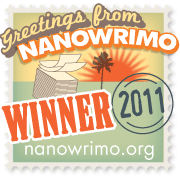As someone who would really like this world to be as lovely as a Belle & Sebastian, Stuart-Sarah-Stevie three-part harmony, I have a dilemma.
I recently purchased a book published by an indie-author who is an online ‘acquaintance’ of mine (not through limebirds by the way in case anyone’s feeling paranoid!) I’m 20% of the way into their book, and I’ve already dipped out and read three other books since I started it as I’m really struggling to engage with it. The writing’s good; the characters are…fine; and the plot is…okay, to be honest I’m a bit bored!
I’ve recently got into the habit of posting reviews of books I read on Goodreads and Amazon both to serve as a reminder of what I thought of them in future and because I think it’s important to support authors.
I’m much happier giving a positive review than a bad one, but I don’t mind being lacklustre when it’s a well-established writer who is unlikely to know or care about what little old me has to say about their book. But I really struggle with indies or writers who don’t have many reviews yet where I feel I should be more generous and I suspect they will read and care about what I’ve written.
I rarely give up on a book, so I will push through to the end at some stage. So here’s the problem. I know if I write a review about this book, the author will both see it and be able to put a face to the name. I would never be rude or criticise, but I would need to be honest in the number of stars that I assign and the reasons why I didn’t engage with it.
What it boils down to is I don’t want to hurt the author’s feelings, which is a real possibility if this book doesn’t pick up soon!
So I wondered what you lovely limebird people thought? Please leave your thoughts in the poll below.
I can’t promise to follow the consensus as I’m really leaning towards the no, but it would be useful to know if anyone else ever feels that rush of guilt when they give a negative review or if I need to toughen up!



